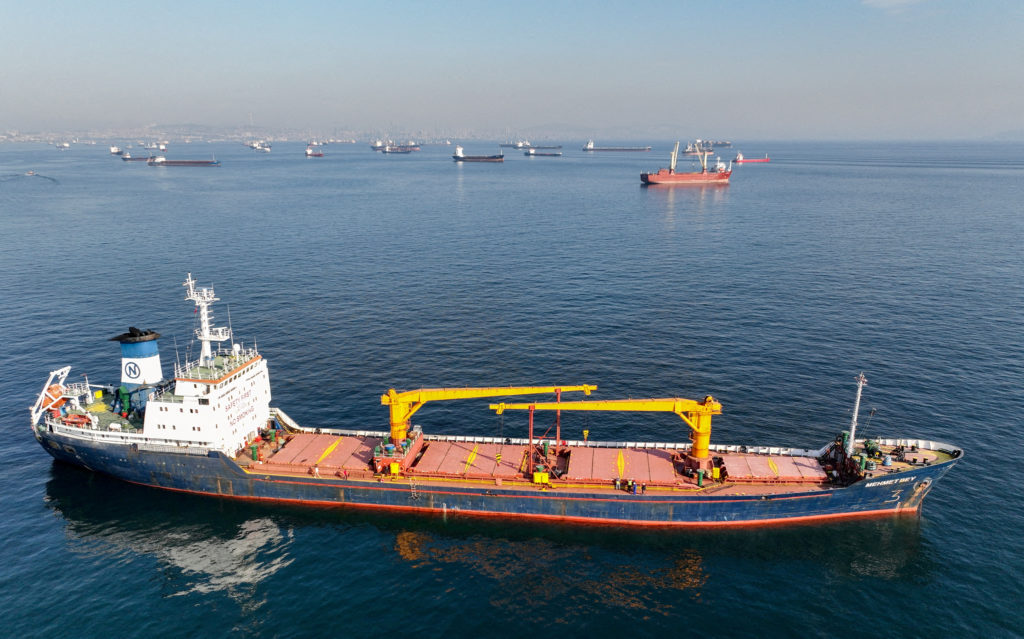Deep-sea mining firm The Metals Co asked the Trump administration on Tuesday to approve its plans to mine the international seabed, making it the first such company to seek the government’s permission to operate outside U.S. territorial waters.
Last week President Donald Trump signed an order aiming to jumpstart mining in both domestic and international waters in an attempt to boost U.S. access to critical minerals and reduce China’s market control.
The move ratchets up tension between Washington and the United Nations-backed International Seabed Authority, which has been crafting mining standards for more than a decade, while China objected to the order as a violation of international law.
Parts of the world’s oceans are estimated to contain large amounts of potato-shaped rocks known as polymetallic nodules filled with the building blocks for electric vehicles and electronics.
Supporters of deep-sea mining say it would lessen the need for large mining operations on land, which are often unpopular with host communities.
Environmental groups are calling for the activity to be banned, warning that industrial operations on the ocean floor could cause irreversible biodiversity loss.
Any country can allow deep-sea mining in its own territorial waters, roughly up to 200 nautical miles from shore, and companies are already lining up to mine U.S. waters.
Vancouver-based The Metals Co asked the U.S. Department of Commerce’s National Oceanic and Atmospheric Administration for a commercial recovery permit under the Deep Seabed Hard Mineral Resources Act of 1980 to operate in part of the Pacific Ocean between Hawaii and Mexico known as the Clarion-Clipperton Zone.
The application was timed to coincide with a Tuesday hearing on deep-sea mining by a U.S. House of Representatives subcommittee at which Gerard Barron, CEO of The Metals Co, testified.
“America has an urgent need for critical minerals. It needs to secure these metals,” said Barron, who estimated the company could extract more than 1 billion nodules containing manganese, copper, nickel and cobalt that would supply U.S. needs for decades.
Glencore has agreed to buy metals the company extracts from the seabed.
The Metals Co expects an initial determination for whether the commercial application meets U.S. regulatory requirements within 60 days, after which an environmental and technical review of the full application would commence. It also applied for two exploration licenses in the zone.
Representatives for NOAA were not immediately available to comment.
Greenpeace’s Louisa Casson said the application would be remembered as an act of disregard for international law and scientific consensus and encouraged other governments to defend international rules and cooperation against “rogue” deep-sea mining.
Shares of The Metals Co lost 1.7% to $3.25 in Tuesday afternoon trading.
INSIDE THE HEARING
The congressional hearing was organized by Republicans, many of whom support the nascent deep-sea mining industry.
“(It) can significantly help America buck the supply chain yoke placed on us by China and re-establish mineral independence,” saidRepresentative Paul Gosar, an Arizona Republican.
Democrats pushed back, calling deep-sea mining uneconomical and a form of “subsidized plunder” of the world’s oceans.
“The industry’s financial models are based on wildly optimistic assumptions and fail to reflect the volatility and reality of global mineral markets,” said Representative Maxine Dexter, an Oregon Democrat.
Privately-held Impossible Metals, which has asked Washington to auction American Samoa’s minerals, told the hearing it had no plans to operate without conducting more environmental testing.
An engineering expert from the Massachusetts Institute of Technology told the hearing the effects of deep-sea mining may not be as severe as some people have speculated but added the practice requires robust regulation.
(Reuters)






